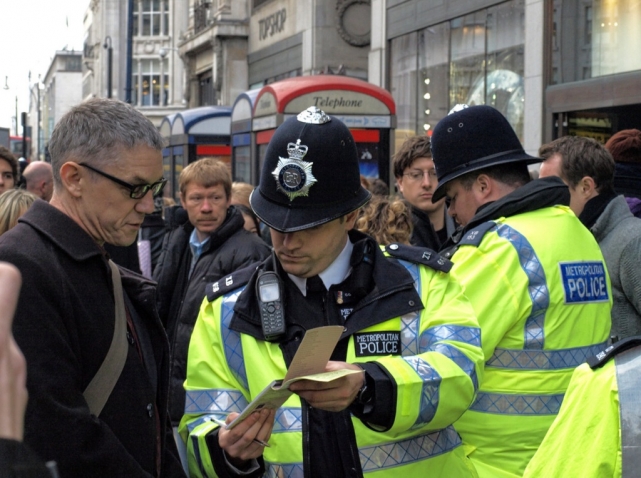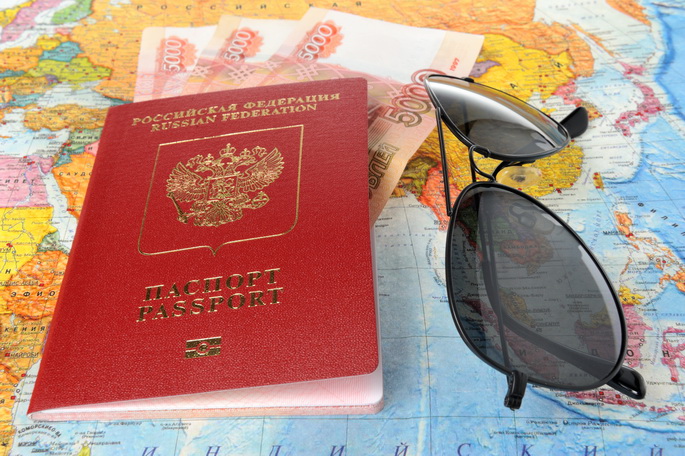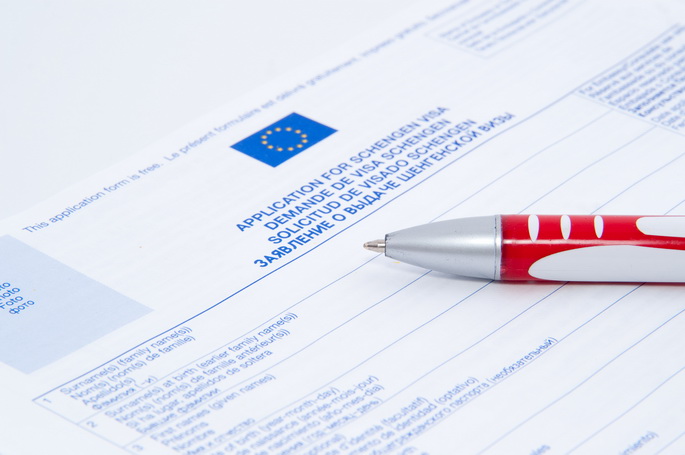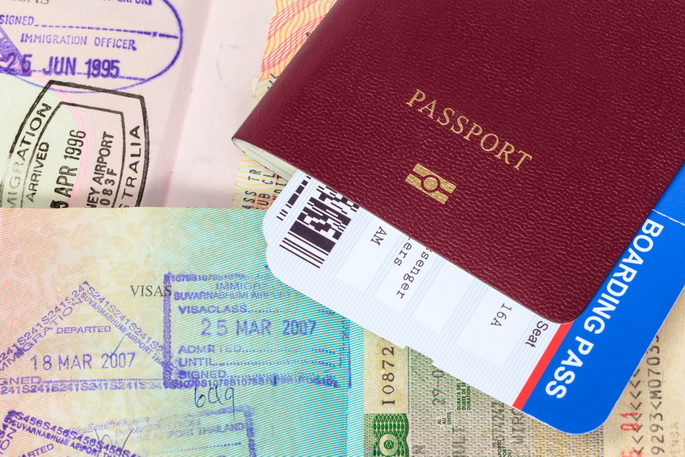Why are visas denied? The main reasons for the refusal of a Schengen visa
After the country for travel is selected, the route is planned, and the tickets and hotel room are booked, the most crucial moment comes - obtaining a visa. And if someone goes through this without complications, then others are less lucky, and instead of one long-awaited stamp in their passport, they get a completely different, not so encouraging one.
Incomplete set of documents

Each country has its own requirements for the required set of documents, and detailed list You can always find it on the embassy website or get it in person. The most common reason for visa refusal is the lack of one or two references, photocopies of passport pages or an outdated bank statement. Pay special attention to the minimum amount insurance, because violation of this requirement (reduction of the amount) will also lead to a refusal.
Before applying for a visa, carefully check the list indicated on the embassy website, double-check the number of copies and the relevance of each document. Correcting this situation is not difficult, but it is even easier to prevent it.
Knowingly false data in the questionnaire
![]()
All documents submitted to the embassy are carefully checked. That is why it is dangerous to falsify the data in the questionnaire, indicating the wrong place of work or providing a salary certificate with false information. An embassy employee will almost always make a test call to the specified organization and easily reveal the fraud, and in this case it will not be so easy to re-apply for a visa, and the ban on entry into the country can last from 3 months to a year.
Don't lie. Most of the documents that are required at the embassy have analogues. So, a salary certificate can almost always be replaced with a bank statement.
Visas of enemy countries

Due to the aggravated foreign policy situation, some states do not issue visas and do not allow those who have already visited the enemy to enter their territory. by the most a prime example is a ban on entry into Syria, Lebanon, Yemen, Sudan, Libya and Iran to travelers who have previously visited and have a valid or expired visa of this state.
When choosing a country for travel, it is worth considering the presence of other visas in the passport. Before booking tickets, it is necessary to investigate the possibility of a ban on entry into the country for the specified reason.
Problems with law

A state that allows a tourist access to its territory has the right to count on adequate behavior and law-abiding behavior. But the margin of trust in most countries is small - once you break the law, and now only visa-free destinations. This is explained by the fact that each misconduct of the traveler is entered into a common database, to which all countries of the Schengen Agreement and a number of other states have access.
Everyone who applied for a visa is checked, including for administrative violations. Anyone who has shown disrespect for the laws of one country in the past is likely to be denied a visa to another. By the way, it is also considered a violation of the law that the tourist did not live in the hotel where he booked the place.
Before visiting a country, you need to familiarize yourself with the peculiarities of its legislation, which can be found in the "Dangers" section on our website. After all, if everyone is well aware that it is not worth walking on lawns, drinking and smoking in public places and conflicting with government officials, then it is better to inquire about specific norms and rules in advance.
Precarious financial situation

Any country is interested in tourists as a source of income. The more money he spends on accommodation, entertainment, food, travel and souvenirs, the more profitable it is for the host state. Therefore, letting unsecured tourists simply does not make sense, and sometimes it is dangerous, because they may well ask for political asylum or become illegal migrants.
That is why the embassy carefully checks the financial situation of each potential guest. The best proof that a tourist will return to their homeland, and on a trip will make generous injections into someone else's budget, is a solid bank account, income statement or documents confirming the availability of property. If, for some reason, an employee of the embassy decides that the traveler is insolvent or is not going to return to his homeland at all, the visa will certainly be refused.
Need to provide maximum amount documents confirming the viability and availability of reasons for return.
No other half

Unfortunately, at present there are a number of countries that you can get into only as a married couple or as part of tourist group. Single girls (this does not apply to young people) are denied a visa without giving any clear arguments. So, for example, they often do not want to replenish the ranks of representatives of the oldest profession with Russians and Ukrainians, and in a number Arab countries a young unmarried woman is not at all perceived as a person capable of making decisions.
Untidy appearance and strange behavior

They can draw conclusions about the applicant on the basis of his behavior and appearance. Although the proverb does not recommend judging “by clothes”, this rule clearly does not apply in the embassy. Dirty clothes that cause make-up, inappropriate jokes or aggression can also tip the balance in the wrong direction for the traveler.
It is necessary to prepare for the submission of documents and an interview at the embassy. Strict suit, calm and friendly behavior, no alcohol the day before, and most importantly - no emotions. It is not worth joking, arguing or showing impatience at the embassy, since all this can be regarded as inappropriate behavior and will be the reason for refusal.

Finally, it is worth noting the notorious “human factor”. Yes, an embassy employee is also a living person, and he may have prejudiced views or a bad mood. And although no one is immune from this, you need to believe in the best, take a responsible approach to preparing a package of documents and be as polite as possible with representatives of the visa service. Subject to these simple rules, everything will work out, and a visa to the country of dreams will certainly be given.
Gathered on a trip, applied for a visa, but were refused? Let's see why this could happen.
All photos: shutterstock.com
2016-04-29 09:30
IN Lately more and more often I hear from friends that they are denied for various reasons in obtaining a Schengen visa. Let's try to figure out what could be the reason for refusing to visit a Schengen country.
Usually, in case of any problems, the visa officer puts a large stamp in your passport, in which letters and numbers are circled. Together they make up the failure code. If you applied for a tourist visa, then in case of refusal, the stamp will indicate the letter C and the number 1. This is a refusal to obtain this particular visa, nothing more. Apparently, you or your documents aroused some suspicion among the officer. If you see C2 on your passport, it means that you will probably be called for a second interview. It may well be that there will be some questions on personal data. C3 - not all provided Required documents. C4 means an indefinite refusal to obtain a visa. The C2 stamp can also mean problems with your air tickets or booking confirmation. Often, tourists try to cheat: they book a hotel in a country where they are not even going to go, apply for a visa and cancel the reservation.

B1, B2 and B3 is a denial of transit visa. If you were going to first transit one country, staying there, for example, a couple of days, and then go to another, then the decision of the visa officer may affect your plans. If you have already been called to the embassy, but you did not appear or did not provide the required documents, then additional codes may be circled in the stamp - A1, A2 and A3. This means that you did not respond to the requirements of the consular representatives, which was the reason for the refusal.
Visa legislation changed in 2011. According to the amendments, now tourists have the opportunity to almost immediately re-apply for a visa either to the same embassy (after correcting the shortcomings) or to another (if, for example, you were going to visit several countries). You made a mistake in your visa application, or an embassy employee doubted you - these are all rather minor reasons for refusal, but, unfortunately, this happens. The individual visa officer makes the decision based on their personal feelings. Someone on bank card 50 thousand rubles are lying, and this can be considered a small amount, and someone is affixed a visa with 10 thousand. Your appearance can also be a reason for rejection. In general, in the embassy of another country, even despite an earlier refusal to obtain a visa, you may well be given the coveted Schengen. Naturally, up to this point they will contact representatives of the embassy of the country where you first submitted documents. If they consider the reasons for the refusal of colleagues to be insignificant, the visa is in your pocket (well, that is, in your passport).

As for the most common reasons for refusal, their list is not so great:
— provision of deliberately false information (the data specified in the questionnaire does not correspond to reality; the booking data is not confirmed);
- fake documents (here, I hope, nothing needs to be explained);
- low level of earnings (an embassy employee may think that you are going to the country to look for work);
— medical insurance(more precisely, its absence);
- a clean passport (yes, newcomers may be denied a visa for absolutely far-fetched reasons);
– early refusals to obtain a visa (if you have eliminated all the violations that were made in the process of submitting documents to the embassy of the country or countries where you were previously going, then there should be no problems, otherwise everything is possible);
— violation of the rules for entering the Schengen area or other violations committed during your stay in a country of the Schengen area;
- you have aroused suspicions of an embassy employee, you simply did not come out in person, or there are some claims against your home country from the country you are applying for entry into.
You can appeal any refusal at the embassy where you received it. Demand detailed explanations from representatives of the embassy, since now they are obliged to give them.

In June, we wrote a lot on the site about the situation at the Greek consulate and about problems with issuing visas, which, fortunately, have now been resolved. Among the publications was . The tourist turned to the experts of travel companies in an attempt to figure out why he was refused Greek visa. He had suspicions that the tour operator “messed up the documents” or even maliciously wrote something wrong in the questionnaire in order to embezzle money for the tour, and send the client not to rest, but to pay for travel insurance.
During the discussion of this case, site users put forward another assumption: maybe it was the visa courier who embezzled the money and fabricated the refusal? After all, there were no obvious reasons not to let the tourist into Greece: he good job, a high legal salary, a beautiful passport with a whole collection of Schengen visas ...
We return to this topic at the suggestion of Denis Denisov. He sent his detailed explanations to the editorial office, to whom and why visas were denied, and dispelled some groundless, from his point of view, suspicions.
Denis Denisov: visa refusal and how to avoid it
Tour operator does nothing
First of all, I want to say that not a single tour operator accredited by the consulate wants to receive visa refusals. This is explained by the fear of losing that very accreditation, and hence the entire business.
Every year in April, all directors of firms (including myself) sign up for a meeting with the consul to sum up the work. If for last year violations in the activities of the company were identified and its customers were denied visas, that is Great chance receive a severe reprimand, and if the situation repeats, you can lose accreditation forever.
Get accreditation from another legal entity- a lot of work and expenses. You will have to draw up a new financial guarantee for 30 million rubles, pay a contribution to "Tourist assistance"- 105 thousand rubles. Therefore, intentionally obtaining a visa denial for your client travel companies can be excluded immediately.
Tales about the courier
You should also not take seriously the assumption that couriers can allegedly put a fake refusal stamp in the client's passport. For them, this is the risk of losing their jobs and getting in trouble with the law.
After all, most often one courier hands over passports, and picks up folders from ready visas another, and it takes a lot of effort to pull it all off. Yes, and the management of the travel agency will soon begin to sound the alarm about the fact that its tourists are being refused. The first check will reveal everything.
Who will take such risks for the sake of 35 euros?
I also want to note that we have not received technical failures for a long time. In case of problems with the documents of the tourist (error in the surname, not opening disk with data on the client, etc.), the Greek embassy and Visa Center always have direct contact with us by phone. This allows you to immediately make all the corrections and get a visa on time.
In a word, all attempts by a tourist to blame someone are meaningless.
Now let's take a look at why in most cases they put refusals at the Greek embassy.
Careful with references
The most common reason is an unanswerable certificate from work. Over the past few years, our clients have lost their vigilance and frankly ceased to be any serious about the preparation of documents, believing that no one will check anything much, and they already have a visa in their pocket.
So, a certificate from work made by friends-acquaintances becomes the reason for the disruption of vacation plans. During a telephone check from the consulate, the employee of the company indicated in the certificate who answered the phone may say: “We don’t have such people.” He simply forgot about the agreement, or he was not warned. This is guaranteed to lead to failure.
Another reason for the refusal may be the embassy's suspicion that the tourist may stay in the Schengen area beyond the allowed visa time. Such suspicions are caused by persons without a visa history with a place of birth and / or residence in unfavorable, according to consular employees, regions of Russia and neighboring countries (Caucasus, Ukraine, etc.). For such clients, there is insurance against non-departure - however, as well as for everyone who wants to mitigate possible negative consequences.
Another problem of our tourists is incorrectly opened visas. Gone are the days when you could get yourself a visa to one country and go to another. The first entry rule was in effect before, but the embassies turned a blind eye to this. Now everything is very tough.
If a tourist entered Greece through another country, then he will have to provide documents that show the main purpose of his trip. These documents can be tickets, a hotel voucher, photographs, checks from restaurants or shops. And what is important, this information will be checked by the embassy in case of certain doubts.
The same applies to multivisa. The first time you need to make a trip to the country that issued the visa, and then at least you can go around the whole of Europe on foot. Ignoring this requirement entails, at best, a reduction in the visa for the duration of the trip, and this, you see, is very disappointing when people around get visas for six months or more. And in the worst case, you will get rejected.
If you have violated the first entry rule, then I advise you to contact professionals who will pick up a tour for you to another country where you have not violated this rule.
In any case, there are options, as long as embassies only look at their visas and their cancellations.
Fake armor no longer works
Separately, I want to note that a few months ago the Greek consulate changed the requirements for accepted invitations for obtaining a visa.
If a client bought a tour from a travel agency or operator, then they don’t have to worry. The company will issue both an invitation and a voucher for accommodation with full payment for the entire stay in Greece. And here independent travelers must take into account the following facts.
Before, everything was quite simple. The tourist booked a hotel through online services (for example, booking), printed out a confirmation, went with it to the embassy and received visas.
But the consulate tracked that many tourists cancel the reservation after that. And we decided to demand 30% payment for accommodation on this booking number.
Needless to say, after this innovation, the demand for visas without tours has sharply increased? After all, it is no secret that many of our fellow citizens have relatives and friends in Greece, which means that there is no point in paying for a hotel in which they are not going to live. And getting a private invitation is a very time-consuming and complicated process, primarily on the part of the inviter. So they are looking for ways where it is faster and easier. However, I want to caution. If you decide to apply for a visa, then contact only trusted companies that have their own accreditation, do not ask you for a power of attorney to apply, make their own paid invitation, and, of course, charge after the fact. There are few such firms, but they do exist.
90 days before order
For the most active tourists as well as those who wish to tourist visas stay in Schengen for up to 90 days without a break, difficult times have come.
At the border and at embassies in without fail they began to calculate all the movements of Russians in Europe, and if the total duration of stay in Greece over the past six months is 90 days, then over the next three months a person will be denied a visa.
For those who did not leave on time and spent a total of more than 90 days in Schengen in six months, an administrative proceeding in court, a decision in absentia and a ban on entry for up to 5 years will await.
Therefore, write down all your trips in a notebook or use a visa calculator. Remember: a violation for one day or one month will have the same consequences for you. If you fall ill and fail to leave on time, be sure to obtain an exit visa from a Schengen country. If the evening plane was delayed, and you actually flew out the next day, and your visa has expired, get an official document from the airline, which you will definitely need to attach when applying for a new visa. It should be said that here, too, you can help the client by taking advantage of the gaps in international law, but that's another topic for discussion.
From the editor: in the near future, read on the website about what a tourist should do if he was denied a visa.



